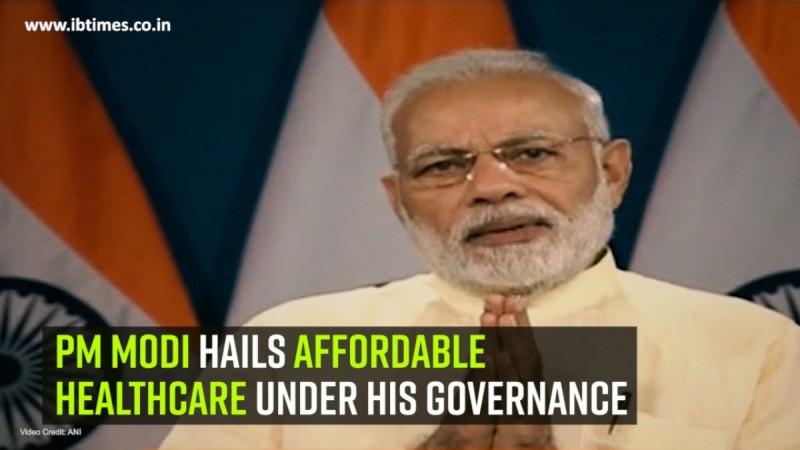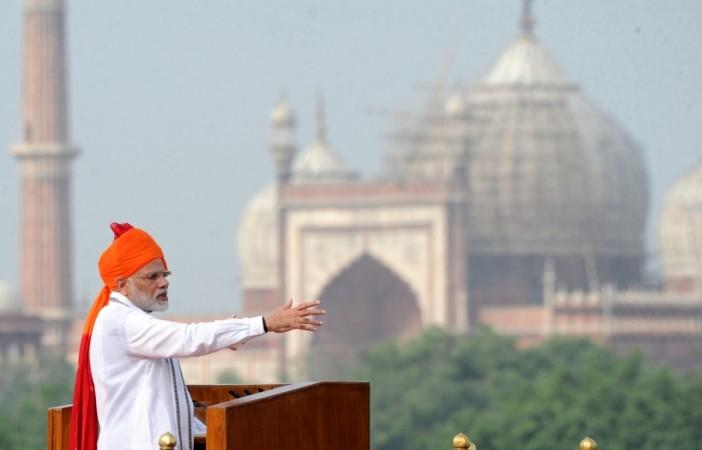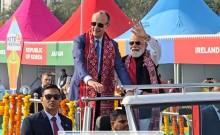
Prime Minister Narendra Modi, in his Independence Day Speech at Delhi's Red Fort, announced his flagship project - The Ayushman Bharat Yojana or the National Health Protection Scheme. The ambitious project, which is being dubbed as 'Modicare' by leaders of the Bhartiya Janta Party, is slated for a September 25 launch. It is also being hailed as the world's largest health protection scheme. Former Finance Minister Arun Jaitley, had in February, announced the scheme during the NDA government's last full budget presentation.
Here's everything you need to know about the healthcare scheme.
- The scheme will benefit close to 50 crore people as it plans to cover about 10.74 crore poor, rural and deprived families. Under the scheme, a coverage of upto Rs 5 lakh will be given to every vulnerable family per year for post and pre-hospitalisation expenses. The scheme will also subsume the current Rashtriya Swasthya Bima Yojana (RSBY) scheme and the Senior Citizen Health Insurance Scheme (SCHIS). The beneficiary families will be decided on the basis of the Socio-Economic Caste Census (SECC) data which covers both rural and urban population. Out of the 10 crore families, 8.03 crore families will be from rural areas and 2.33 crore families will be from the urban areas of the country.
- The government has decided to start an Ayushman Bharat National Health Protection Mission Agency (AB-NHPMA) to manage the national level scheme. The government will also advise several state and union territory governments to implement the scheme, either by using an existing Trust or society or an NGO and State Nodal Agency or by setting up a new entity dedicated to the successfull implementation of the scheme. They can also implement through an insurance company or even use an integrated model.

- So far, 22 states have chosen to run the scheme on "Trust model" and Rs 10,000 crore have been allocated by the Centre for its ambitious project. A formal process has also been launched by the Health Ministry to enlist public and private hospitals to attain universal health coverage under the project. These enlisted hospitals will give cashless benefits to the beneficiaries covered under the scheme no matter where they are in the country as the scheme's benefits will be portable across the country.
- The scheme is aimed at giving access to quality health and medication to people and also at catering to the unmet needs of the population which remains hidden owing to a lack of financial resources. It aims at timely treatments, patient satisfaction, improvement in productivity and efficiency and improved health outcomes. The project also aims at generating job opportunities which will eventually lead to and improved quality of life.
- The government plans to divide the expenditure incurred in premium payment between central and state governments on the basis of specific ratios. For all the states and Union Territories with their own legislature, the funding for the scheme will be shared in ratio of 60:40. For the states in Northeast India and the Himalayan states of Jammu and Kashmir, Himachal Pradesh and Uttarakhand, the ratio has been set at 90:10 and for the Union Territories, who do not have a legislature of their own, 100 percent funding will be done by the Centre. Even after implementing the Ayushman Bharat Scheme, the states will be allowed to also continue their own health care and protections schemes.

















